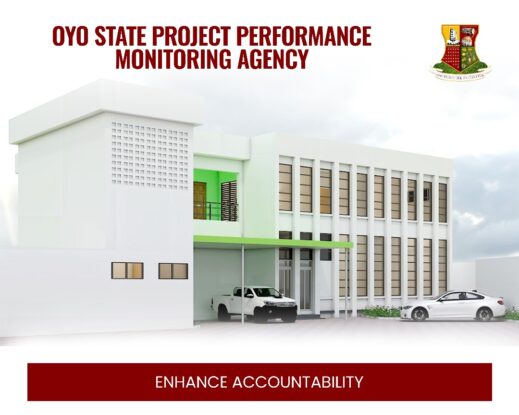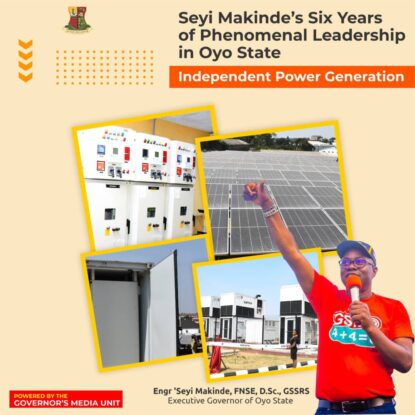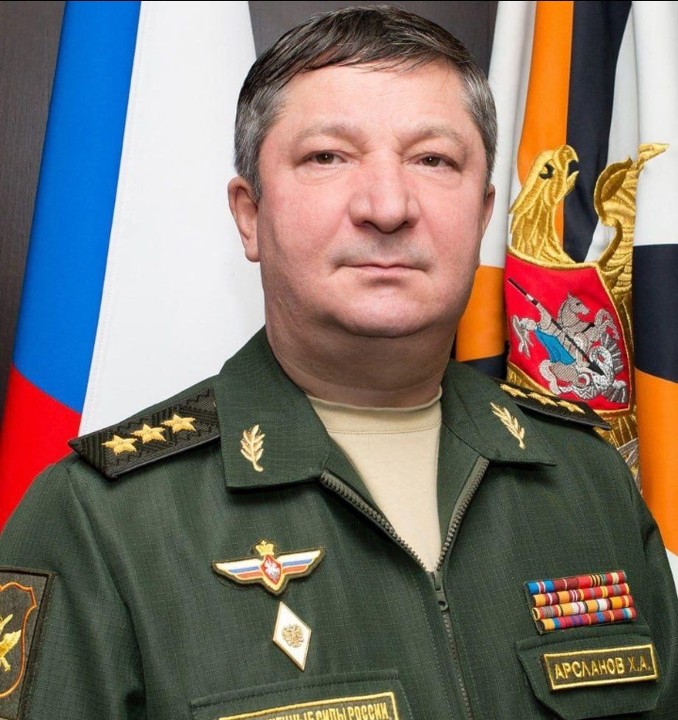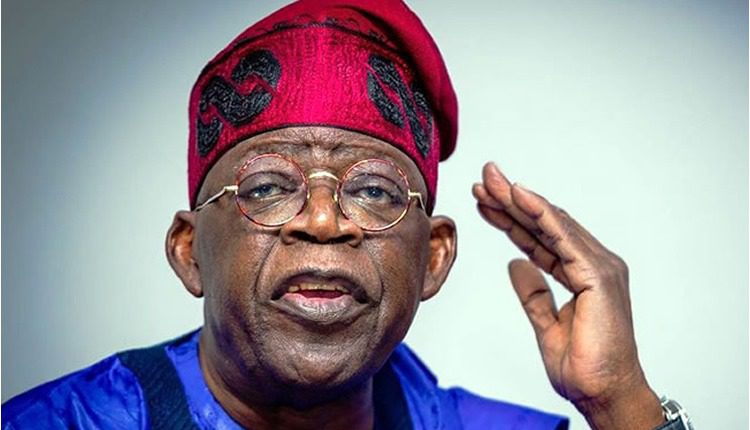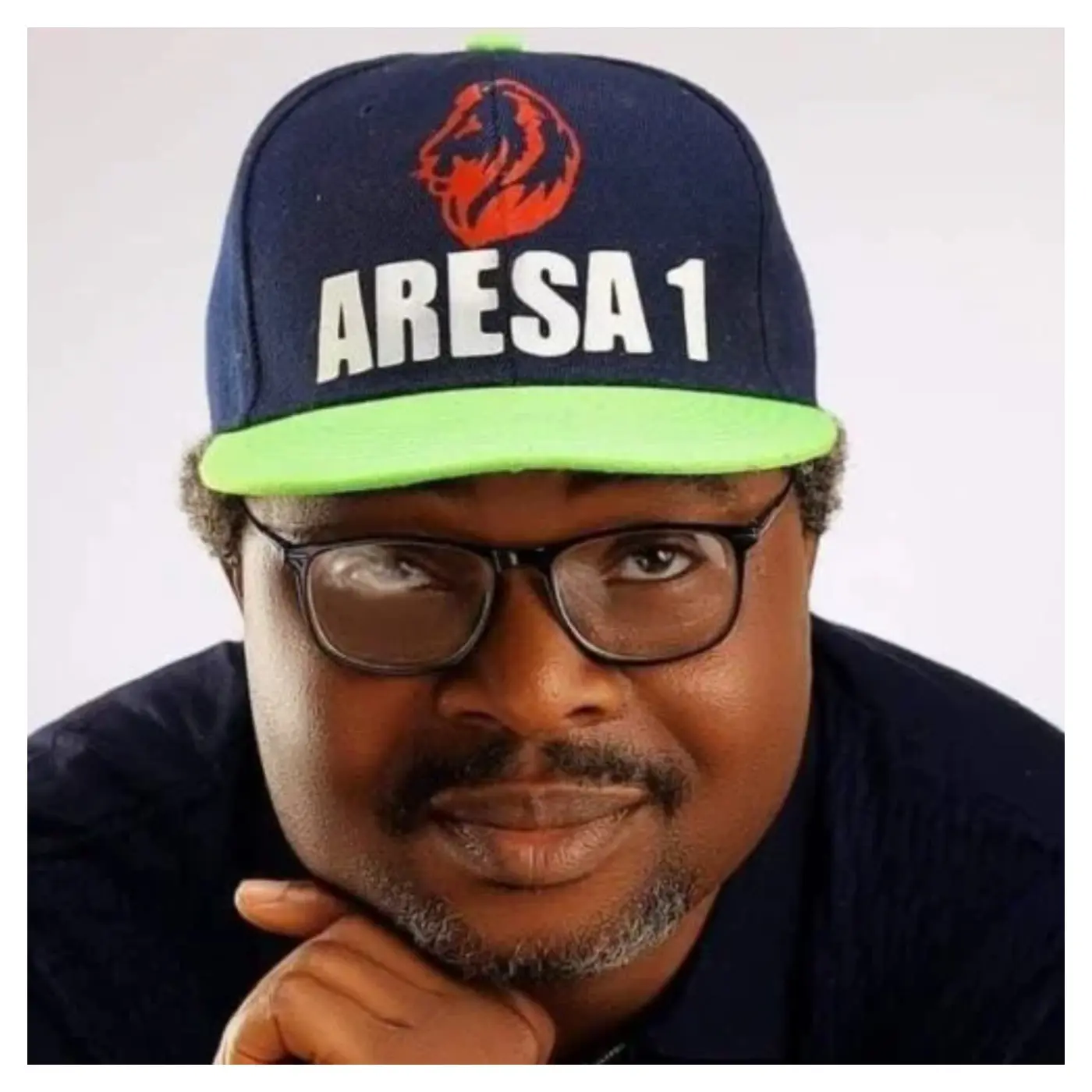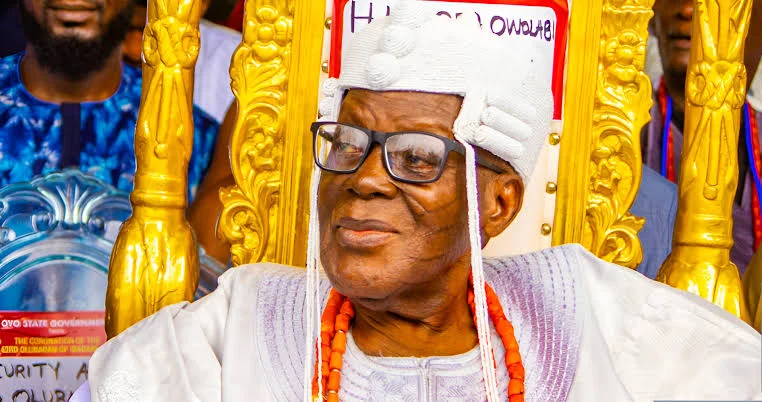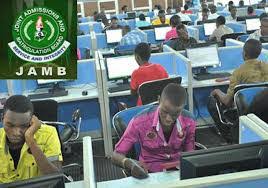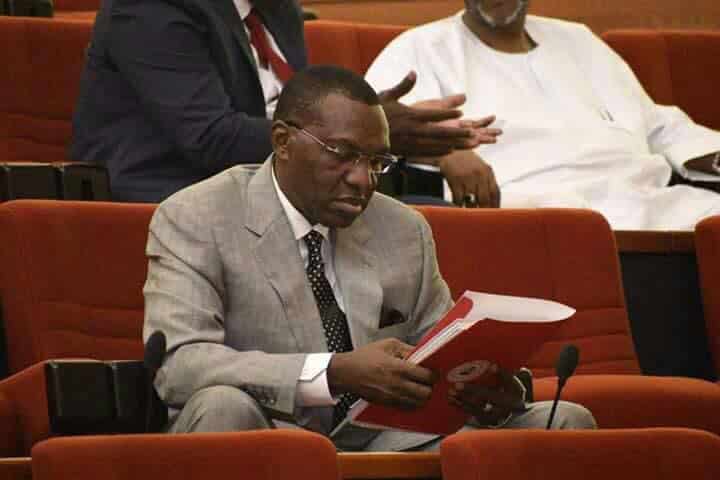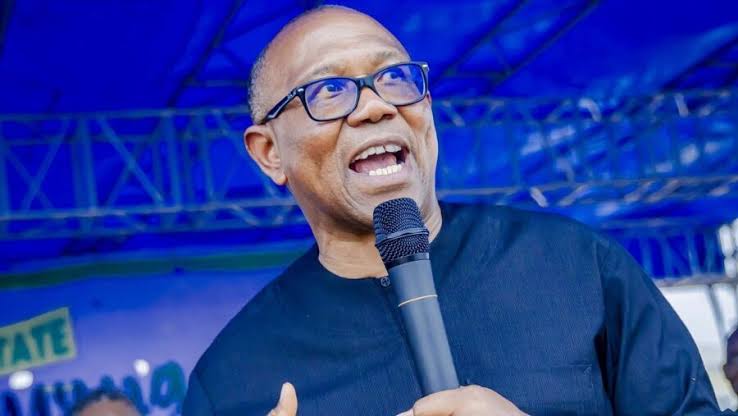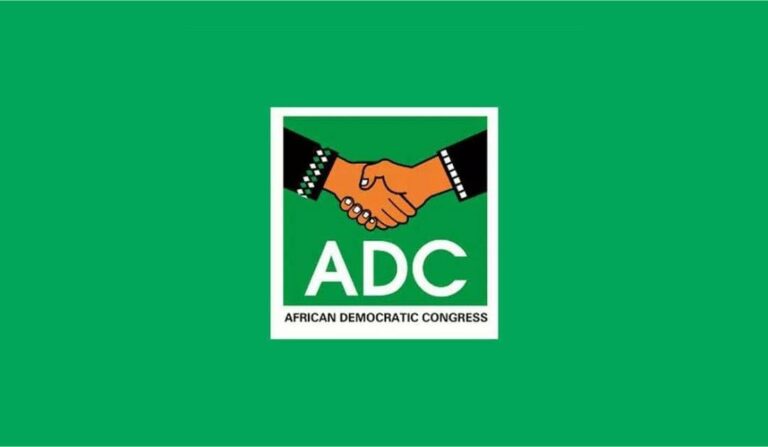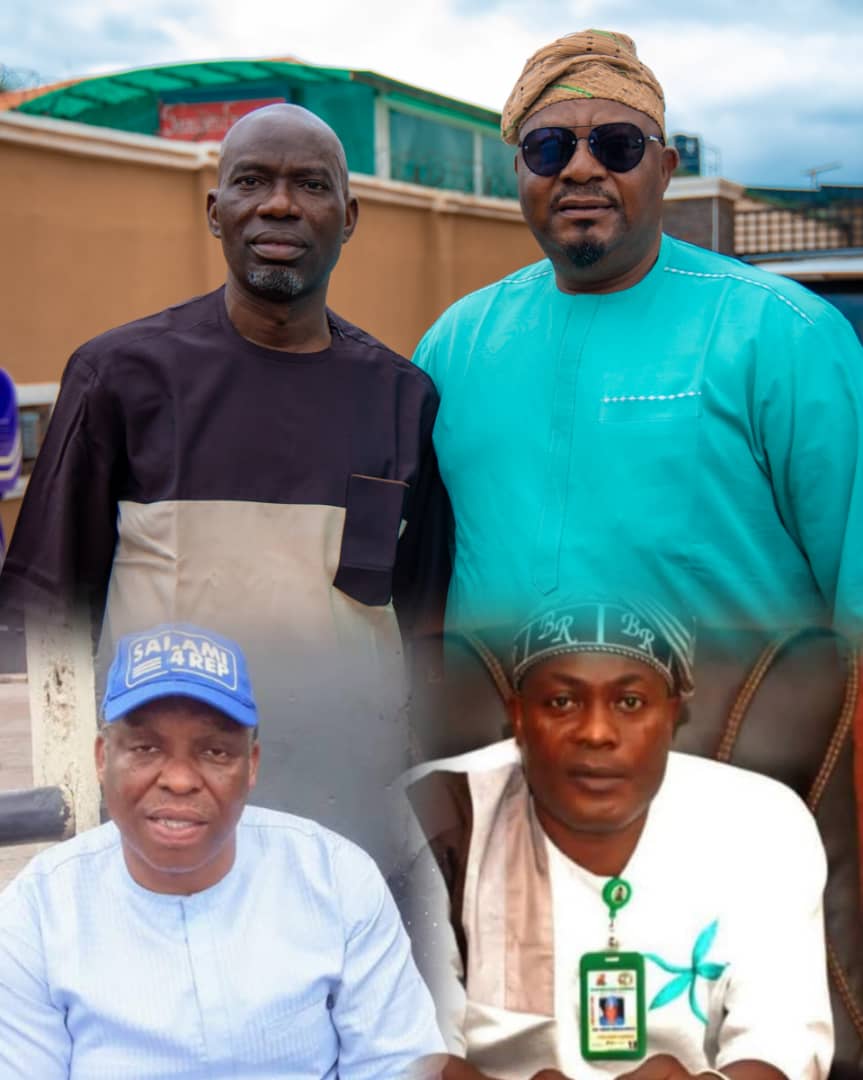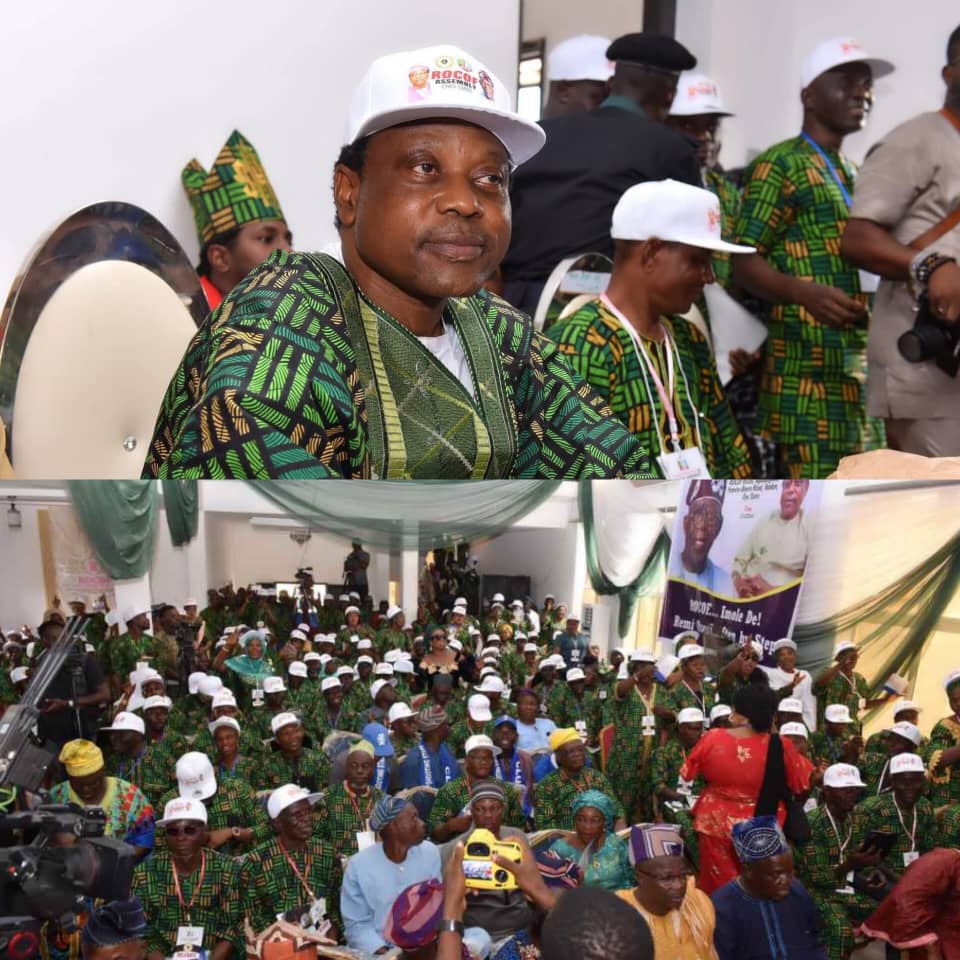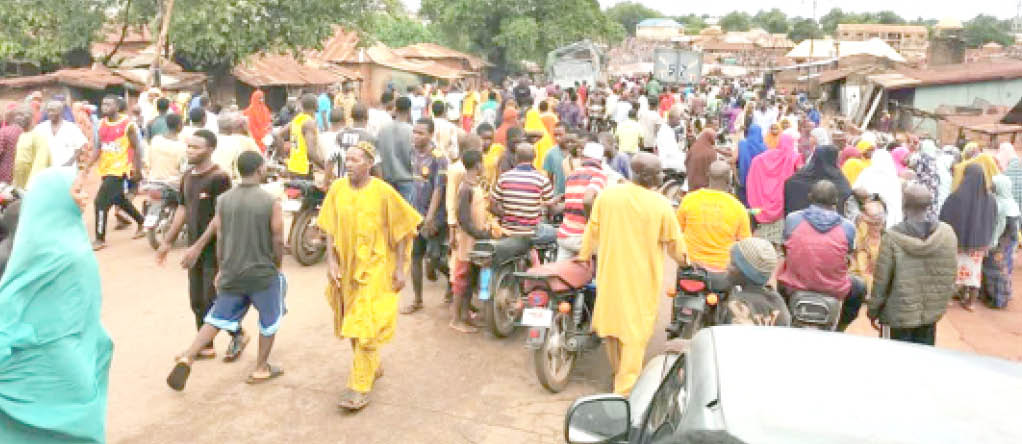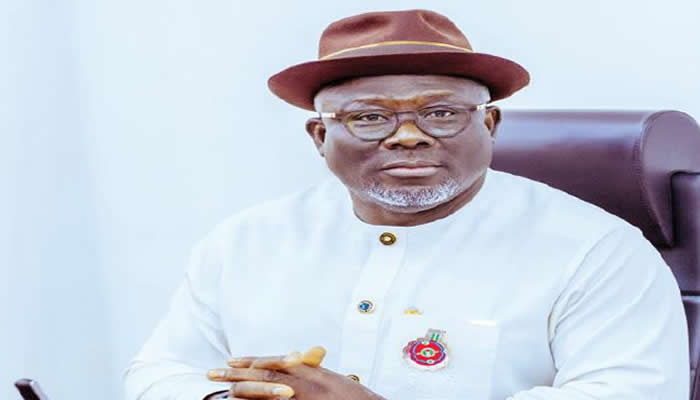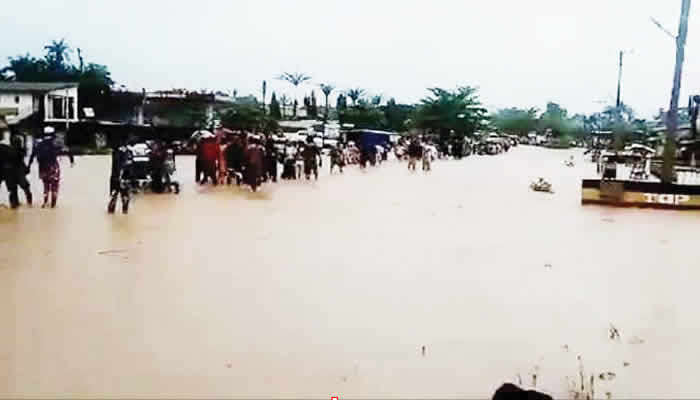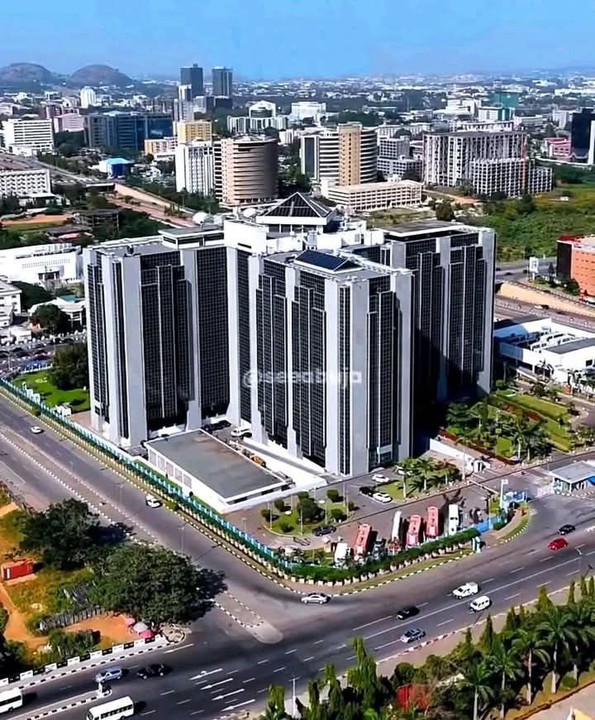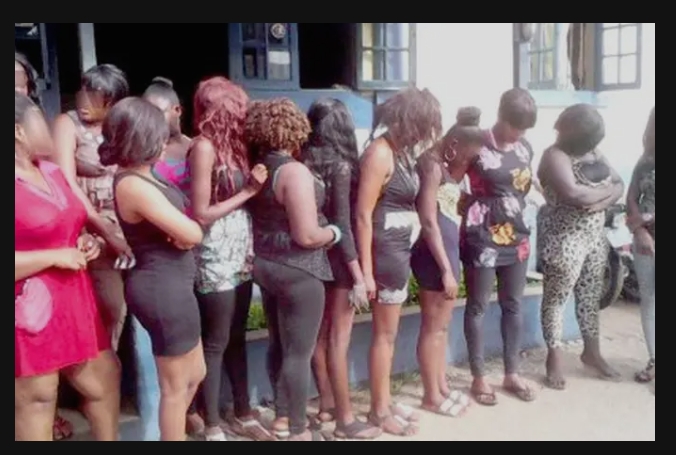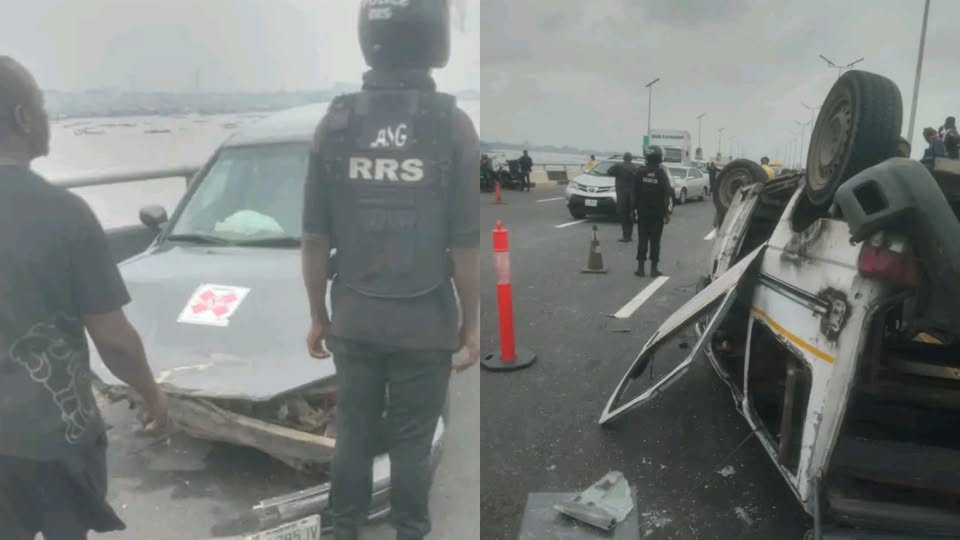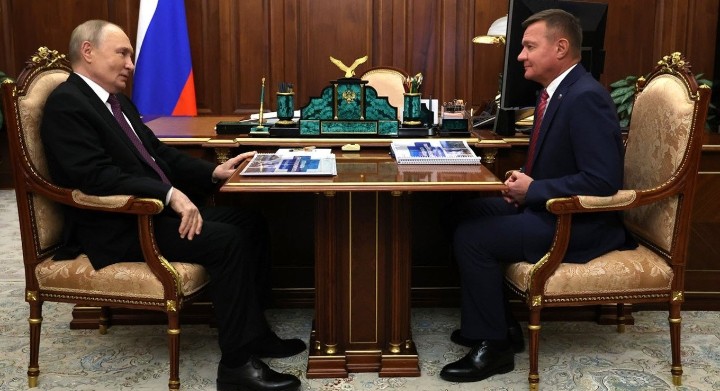ADC Big Question: Who Steps Down As Peter Obi, Atiku, Amaechi Eye Ticket?
• Analyst asks anti-Tinubu coalition to prepare to fight.
• Says ‘we are talking about people who monumentally de-marketed Jonathan, PDP’.
• WARNS OBIDIENTS: There are no polling booths on the internet.
•ON MBAH: If you don’t want Enugu gov to defect, give him reasons.
Who will step down for the other? That is the key question a political analyst, Prof Okey Ikechukwu, tries to answer in this interview as the anti-Tinubu coalition moved into the African Democratic Congress (ADC), last week, to confront the ruling All Progressives Congress (APC) in the 2027 polls.
No fewer than three top members of the coalition have indicated interest in picking the presidential ticket of the alliance, and there could be more as we inch closer to 2027. Former VP Atiku Abubakar ranks high on the list.
Mr Peter Obi and Rt. Hon. Rotimi Amaechi is also in the race, as they have said they will spend only one term if given the ticket and elected president in 2027.
Obi and Amaechi’s position aligns with the agitation that the South should remain in power until 2031, when it is expected to shift to the North. President Bola Tinubu, also a southerner like Obi and Amaechi, will finish his first term in 2027 and is warming up to contest for a second term.
Ikechukwu, who is the Executive Director of the Development Specs Academy, asks the coalition to prepare to fight as the people they will face in 2027 are tough, citing the monumental de-marketing of President Goodluck Jonathan and the Peoples Democratic Party (PDP) ahead of the 2023 polls by them.
He warns that the Obidient Movement risks repeating the mistakes of 2023 if it continues to rely on online popularity rather than building real political structures on the ground. He describes the reinstatement of Senator Samuel Anyanwu as the PDP National Secretary as a decision that could further alienate members in the South-East.
The analyst also speaks on the rumoured defection of Governor Mbah of Enugu from the PDP. Excerpts:
The PDP said it reinstated Senator Samuel Anyanwu as the National Secretary to save the party from implosion. Do you think what the PDP declared on Monday was a pyrrhic victory?
Well, it might turn out to be at the end of the day, but the question of the party imploding, it already imploded long before now. The critical issue on the table is the choice of Anyanwu, and then the submission from the South-East Caucus that Anyanwu is not their candidate. Question number one, is this new in the PDP or in any of the political parties? The answer is no. If you think back to 2019, Atiku contested for the office of president under the PDP, with Peter Obi as his running mate.
The same reaction you’re getting now is the reaction you got from the South-East. If you recall, after Peter was chosen by Atiku, there was a press conference by those who called themselves South-East stakeholders within the PDP. That group was led by, I think, then-Governor Dave Umahi.
They addressed Nigerians that “this is not our choice”. But the candidacy or choice of Peter Obi stood despite that. That reaction was based, I think, on the assumption or the understanding behind the scenes that Ekweremadu was going to be the candidate.
And if you recall, the feelers from the PDP was that nobody knew this was coming, and that Atiku made the announcement and fled the premises. The other point to note is that you asked about whether it would be a pyrrhic victory. Remember that that 2019 election, Peter got majority votes in the South-East.
But those who voted for him made sure that Buhari also got 25 percent of the votes which he needed in order to win. So it is for them to ask themselves the question: What we are doing now, what will it deliver to us? But, more importantly, you may have a party caucus that’s also not on ground.
The challenge is for Anyanwu to prove that he’s the big boy those supporting him think he is. If he’s the big boy, if he has clout, but his brothers and sisters don’t want him, let him show that. Now, let’s place some facts on principle on the table and then come to the matter of general politics.
In principle, you cannot challenge a political party for taking a position on any issue. But from the matter of building party cohesion and synergy and giving everybody a sense of belonging, it would make sense to say, “Look, if you’re choosing somebody from my family, I should be the one to say this is the person I want to represent us in the village square”. So, I can understand the caucus concern.
But take that concern even further back to the time of Obasanjo. Most of the Senate presidents chosen when the South-East had the presidency, were they really the candidates of the South-East? Probably, except one. So, those are the things to consider. As for implosion, the PDP imploded long ago. And I’ll give you the reason for it. Think of the re-entry of Alhaji Atiku Abubakar into the PDP, and he got the ticket, and how many people got annoyed, and how very powerful politicians in the North said, “Okay, he has got the ticket, let us see how he’s going to win the presidency”. That party is trying to pretend that it still has an identity.
It’s trying to pretend that the NEC can actually take binding decisions. It’s trying to pretend that it can control its membership when nobody can control Nyesom Wike. So, this party will participate in the 2027 election, but I doubt that it will contest. And what that means is, if you’re contesting with me for a gunfight and you come with a catapult, you’re participating, you’re not contesting because the contest is to be prepared and equipped to win. The party is not poised to win that election at the level of strategy, at the level of cohesion, at the level of building internal democracy, and at the level of making all the regions feel they belong.
The issue in the South-East would mean that those who are angry will engage in anti-party activities These are the challenges and dangers the PDP should contemplate and navigate now that it’s taken the decision that it has to be Senator Anyanwu.
Considering the speculation that Mr Peter Mba of Enugu State might be the next governor to decamp to the APC, the emergence of the coalition and how they have adopted the ADC, bringing in disgruntled PDP members and the Peter Obi effect and the stronghold that he has in the South-East, where do you see the dice falling?
You cannot have a coalition of people who are not only disgruntled, but all of them have had very disturbing relationships with each other in the past, have ideological differences, and there are also nearly all of them angling for the position (presidency).
Who will step down for the other? Secondly, all this talk about coalition, apart from Abuja, Lagos, and maybe press releases, what efforts are being made at the levels below the national, even the periphery of the national, to create some kind of understanding, some kind of building, building backwards, and say “let’s go to our party members in the states and tell them it’s in our interest to do this?”.
They want to form a coalition at the top, and, with it, rule Nigeria. That is problem number one. Problem number two, look at the relationship between nearly all of them.
Remember that El-Rufai has the challenge of the Muslim-Muslim ticket. Then Babachir Lawal is a die-hard Christian. Many people think that Atiku Abubakar should step down.
Rotimi Amaechi is on the table, and some of us are not entirely sure what he’s bringing to that table. David Mark is there also, a two-time Senate president with a lot of clout. Picture a room where all of them are sitting together to form a government for Nigeria. How will the conversation go? What are the policy issues they will bring up? They are likely to discuss positions. Who will be vice president? It’s not about development, even though the intention on the table, on the pretext, is development. Their concern is to remove the APC government.
Supposing, for instance, in doing this, they are telling us this is what we want to put on the table once we get rid of the APC…
You see, there will be a basis for conversation. But to sound very angry, to tell us, “Nigeria, all of us are suffering”, we know that, including those who are telling us that we are suffering.
What do we intend to do about it? What are the alternative policies? What strategies are in place? The parties in which you are today, are they doing well? Is there internal democracy in those parties? The states where your party is governing today, are they doing well? Are the governors exceptional? When you consider all of these, I look at the whole coalition talk with a lot of pessimism for the simple reason that whereas it would be wonderful for them to replace APC by whatever name they choose to call the party, the question I ask myself is, are they really preparing to do that? There’s a difference between engagement and strategic engagement. You want to deal with the rain and a leaking roof, and you bring only buckets.
You’re not thinking of replacing the roof. They are not being strategic, and the profiles of the individuals involved present a double barrel negative challenge for all of them. They should prepare for a fight if they are serious, and I don’t see them being sufficiently strategic to do that.
Mba’s defection
Peter Mba’s defection is a possibility. Could that make people say, “Oh, this man is not reliable?” Yes. They can say that, but I will also ask, is ideological conversion possible? Yes. Do defections occur in political parties? Yes. Do some of us like it? No. Does it remove the fact that somebody can do it? It doesn’t.
If you don’t want him to defect, give him reasons not to defect. If somebody is going to defect from your party, why is he doing so? What’s the problem with your party? Why is he moving? If you can prevent him, first of all admit your own shortcomings that are making people vacate your own address.
Obi’s effect
The third point is the Peter Obi factor. Yes, Peter Obi is very popular not only in the South-East but all over the federation. The Obidient Movement is strong and powerful and even growing stronger. But as I keep telling the movement, there are no polling booths on the internet. There’s no polling booth on Facebook or Instagram. Polling booths are in specific local locations, and they have to be manned by party agents. That’s fact number one.
Fact number two is, are the Labour Party or the Obidients or both of them together building any kind of cohesion such that there’s a progressive development of ideological purity, group cohesion, meetings and encounters, leading to the development of structures at the ground level? I’m not seeing it. Finally, on the Peter Obi factor, Obidients have argued convincingly and correctly, that, “Look, we’ve proven a lot of people wrong. They say that without structures you cannot win elections in Nigeria but, without structures, see all the votes we got in Lagos, see all the votes we got all over the country”.
Fantastic! But there’s an Igbo saying that if the person who uses a mousetrap sets a mousetrap in order to catch a chimpanzee, the trap will actually catch the chimpanzee but you know the problem? The hunter will neither come home with his trap nor the meat of a chimpanzee. You got all the votes, no question about that. You won Lagos, I believe you. Did those votes come into your pocket? No. Why? If you know the answer to that question, are you doing anything about it? Look, they are just wasting the time they need to prepare for the next elections in speech making, in self-adulation, and in what you might call conversations that are not going further down. They are wasting the potential and possibilities of that movement.
Discretionary expenses
And if you recall, in the last elections, the Labour Party is correct in saying “we no dey give shishi” but I’ll ask that party to make a distinction between mandatory expenses and discretionary expenses. If you send me to go to the market and buy you groundnut, and give me the money for the groundnut, but no money for transport, you say, “Oh, I’m a volunteer”. But I may get tired on the way. And the danger is that your enemy may give me a ride.
They have to recalibrate the conception of “I no dey give shishi” to mean “we will not bribe or spend money to subvert the process, but we’ll deal with necessary costs for those who will work for us”. That’s number one. Number two, they must develop legs on the ground.
Number three, and most critically, they must structure their funding clearly and tie it to specific things that enable parties to develop. It’s not when there is anything to be done, you begin to find out, “Oh, we have to buy ticket for this person, so remove him from the list of those who are traveling”.
As long as they go on like this, they will also participate in 2027 but they will not contest. That’s in the element of the Obidient Movement, Peter himself, and the rest of it. They are not preparing to displace APC because you’re talking about a party that used fantastic strategy as opposition, de-marketed the PDP comprehensively, de-marketed Jonathan comprehensively, sometimes without data, claiming, “Oh, once we come in, we’ll have one naira to one dollar”. He came to the primaries contrary to everybody’s expectation, Tinubu got the ticket. He came to the election, “Oh, so it’s a walkover. How can he? He has lost”.
He won the election. No matter the means, people are still seething with anger about the method. But the truth of the matter is that if you’re going to displace or take on such a person, prepare for the fight. If you want to go into wrestling, prepare for wrestling. Don’t go and prepare with wrestling skills for boxing.
Then when they defeat you, you say, “Oh, the man was too violent”. Are you not the one who said you wanted to fight? So I think this delusional element of hoping that applause from the people will give you the presidency, it will not. That movement needs to super up, impressive as it is, it needs to develop more or less on the ground.
What strategy do you think the coalition should adopt and what can or should the APC be doing to reaffirm the strong position it currently has?
First of all, the coalition should define its ideological trajectory. “We are coming in to replace the APC because we want to do this and this”. That’s number one. Number two: “This is how we are going to do it, implementation of strategies.
The kind of candidate we want will be this type of candidate, a competent Nigerian, but in order to create balance, the president will come from this place, the vice president will come from this place. Then, in terms of spread, we are going to hold meetings. First, each of the coalition parties will meet at the ward level, council level, state and regional level”. Then come to the national to announce, “Yes, we’ve created an organic engagement”. They need to do a drill down. If they do these three things, people will become clear about their narrative and know whether to trust them or not.
But to keep coming on air and saying “we are doing coalition to remove Tinubu”, how do you assume that removing him will give us anything better? And this has nothing to do whether he’s there or not. If they like, let them remove him.
I’m suffering like everyone else. But the point I’m making is, there was a time in this country we said “anything but Jonathan, get rid of him, he’s incompetent”. Buhari came in and everybody said, “Good heavens, we’re in hell”. Buhari has left, Tinubu is here and we are screaming.
So the ability to complain is not the issue. Plan a strategic displacement template, apply it. For instance, people are asking, why will certain people be the ones who are standing to contest? And all the individuals mentioned have their challenges. Clear all of that, then you’re making sense. Otherwise, this is just entertainment with all due respect to the persons involved, it will peter out.
Regarding the APC, the party has no business celebrating the volume of people decamping because as they are coming, you must also be welcoming and warehousing them. This second element is critical. If you planned a party for 50 people, now 75 people have turned up, please make sure you don’t leave everybody coming in standing around. The place will become disrupted.
So the possibility of that problem is there. But more importantly, it’s for the APC to begin to articulate more clearly its policies. The engagement in 2027 is coming a little too early. I think the APC might need to ask some of those excitedly jumping up and down for that and clearly looking for money to spend on those who will sponsor them that it may all backfire. Focus on your programs. Tell us how you are reaching the grassroots.

